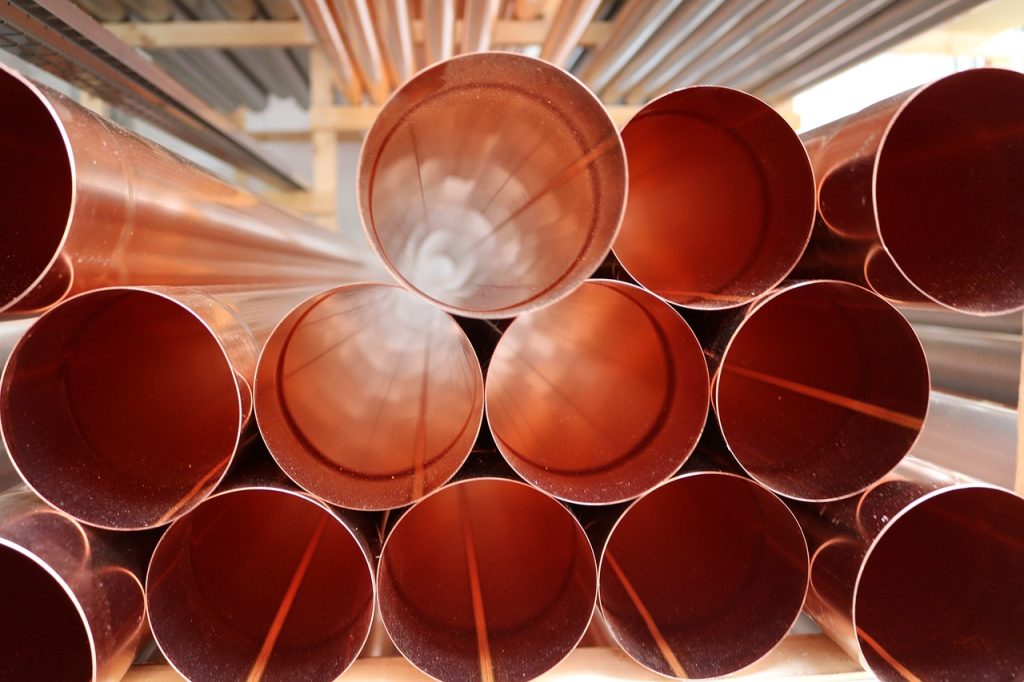Enhancing Your Cooking Area with Costs Copper Products: Tips and Finest Practices
Enhancing Your Cooking Area with Costs Copper Products: Tips and Finest Practices
Blog Article
Exactly How Copper Products Contribute to Sustainable Practices in Various Sectors
In eco-friendly power systems, for instance, copper boosts the capability of solar and wind modern technologies, while its application in construction lessens waste through longevity. As markets look for to adopt more sustainable practices, the role of copper could verify pivotal in accomplishing environmental goals.
Copper in Renewable Energy
Copper plays an important role in the innovation of renewable power innovations, functioning as a crucial conductor in different applications. Its exceptional electric conductivity and resistance to deterioration make it a perfect material for electrical wiring, which is crucial in photovoltaic panels, wind turbines, and power storage space systems. In solar photovoltaic systems, copper is used in the affiliations and circuitry, allowing effective energy conversion from sunlight to electricity.
In wind power, copper is important to the generators and transformers that convert kinetic energy right into electric energy, making sure ideal performance and dependability. The demand for electrical automobiles (EVs) is enhancing, with copper being a vital element in batteries, electric motors, and billing facilities. The shift to EVs dramatically boosts the need for copper, as these lorries commonly use 4 times a lot more copper than conventional internal combustion engine automobiles.
As the world seeks to reduce climate modification and shift to lasting energy sources, copper's function becomes increasingly important. The product not just improves the performance and resilience of eco-friendly energy systems but also supports the more comprehensive objective of minimizing greenhouse gas emissions and promoting a lasting future.
Eco-Friendly Building And Construction Products
In recent times, there has actually been a significant change in the direction of the adoption of green building and construction materials in response to growing environmental worries. This modification is motivated by the need for sustainable alternatives that minimize eco-friendly footprints while keeping architectural integrity and aesthetic charm.
Copper, understood for its resilience and recyclability, has actually emerged as a vital player in this field. It can be utilized in roofing, plumbing, and electric systems, adding to power efficiency and minimizing waste. Copper's long life indicates fewer replacements in time, further improving its sustainability profile.
Additionally, materials such as bamboo, reclaimed timber, and recycled steel are acquiring appeal. These choices not just use lowered ecological influence however additionally advertise source conservation. As building codes increasingly stress sustainability, architects and contractors are incorporating these materials into their jobs, cultivating development in layout.
The boosting adoption of environment-friendly building products reflects a wider dedication to sustainability in the built environment. By prioritizing these products, the construction sector can significantly minimize its carbon impact, straighten with regulatory criteria, and support a healthier ecosystem for future generations. This pattern marks a crucial step towards a much more sustainable future in building.
Copper's Function in Health care
Current research studies have actually highlighted the significant function of copper in health care setups, specifically as a result of its antimicrobial buildings. Copper surface areas have been shown to reduce the presence of pathogens, including microorganisms and infections, by as much as 99.9% within a brief duration. This remarkable efficacy makes copper an important material for high-touch surface areas in health centers, such as doorknobs, bed rails, and IV poles, consequently adding to enhanced infection control actions.
In investigate this site enhancement to its direct antimicrobial results, copper likewise plays a function in the more comprehensive context of hospital sustainability (Copper Products). By integrating copper into clinical tools and furnishings, medical care centers can decrease the incidence of healthcare-associated infections (HAIs), which not just boosts person end results yet additionally decreases the prices connected with prolonged medical facility keeps and added treatments
In addition, copper's longevity and recyclability straighten with lasting practices, enabling accountable resource administration. As health care systems increasingly focus on both client safety and ecological stewardship, the combination of copper items is coming to be extra common. This double benefit highlights copper's crucial payment to a healthier, safer, and extra lasting healthcare atmosphere.
Sustainability in Transport

In addition, copper's longevity and rust resistance add to the long life of transportation framework (Copper Products). In rail systems, for example, copper components improve the integrity and effectiveness of signaling and power systems, essential for decreasing delays and power intake. In addition, copper's function in renewable power systems, such as solar and wind, sustains lasting transport remedies by providing tidy energy for electric transportation options
Investments in copper modern technology not only foster sustainability but additionally stimulate economic growth and job development in environment-friendly markets. As markets make every effort to meet stringent environmental policies, the application of copper items in transportation emerges as a pivotal strategy in attaining sustainability goals and promoting a cleaner, a lot more effective future.
Copper and Circular Economic Climate
As the globe significantly accepts sustainability, the function of copper in the circular economic situation comes to be ever extra substantial. Copper's innate buildings-- such as its recyclability, conductivity, and longevity-- setting it as a vital product in a resource-efficient economic climate. The round economic situation intends to reduce waste and maximize source use with recycling and reusing materials, and copper excels in this respect.
The metal can be reused indefinitely without loss of top quality, making it an excellent candidate for lasting methods throughout different industries, including building, electronics, important source and renewable resource. By reprocessing and recovering copper from end-of-life products, sectors can considerably minimize the requirement for virgin materials, therefore decreasing environmental impacts related to mining and processing.
Furthermore, the combination of copper right into round economy frameworks not just conserves resources yet additionally fosters advancement. Organizations that prioritize copper reusing contribute to an extra sustainable supply chain, enhancing their competitiveness while aligning with regulatory demands and consumer preferences for environmentally accountable items.
Final Thought
In verdict, copper items significantly add to lasting methods across several markets. Their vital duty in enhancing eco-friendly power modern technologies, promoting green construction materials, sustaining infection control in medical care, helping with sustainable transportation, and embodying news the principles of a circular economic situation underscores the adaptability and value of copper. By integrating copper into numerous applications, industries can accomplish better effectiveness, minimize environmental influence, and straighten with global sustainability objectives, ultimately cultivating an extra sustainable future.

Copper's excellent conductivity makes it a preferred material in electric car (EV) systems, improving energy efficiency and efficiency. In addition, copper's duty in eco-friendly energy systems, such as solar and wind, supports lasting transport remedies by giving clean energy for electric transportation options.
Their important function in boosting sustainable energy innovations, advertising green building materials, sustaining infection control in health care, helping with lasting transportation, and personifying the principles of a round economic climate emphasizes the versatility and relevance of copper.
Report this page